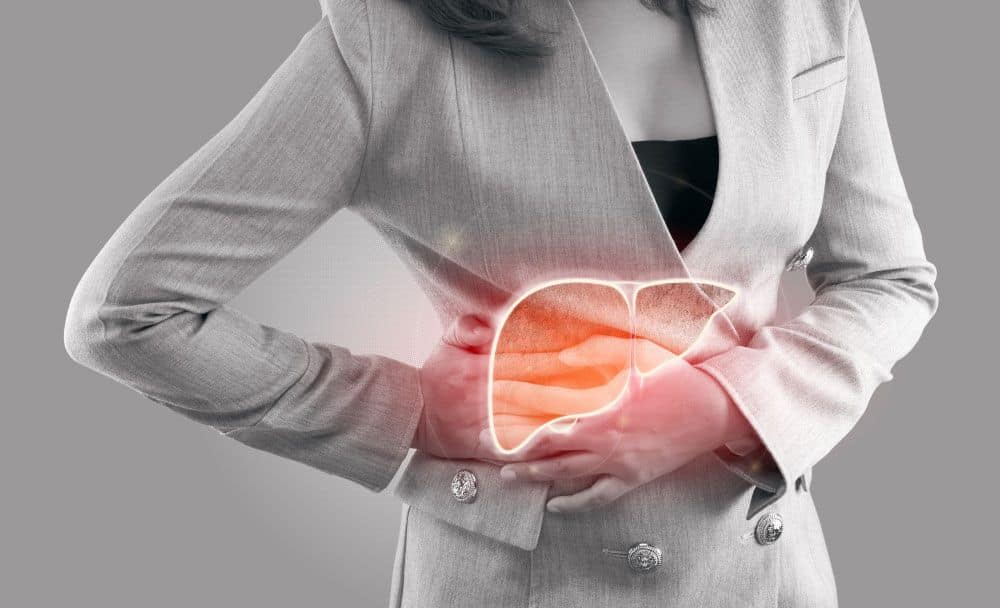Fatty liver disease is a condition affecting millions of people globally, and yet many are unaware of its existence. It is also known as hepatic steatosis and occurs due to fat accumulation in the liver cells. It leads to inflammation and damage to the liver, which can be dangerous if left untreated.
This article thoroughly explores fatty liver disease, discussing its symptoms, causes, risk factors, and treatment options. Whether you’ve been diagnosed with the condition or are curious to learn more, here’s everything you need to know to make informed decisions.
What is fatty liver disease?
Fatty liver disease happens due to fat build-up in the liver cells, causing inflammation and damage. There are two types of this disease: alcoholic fatty liver disease and non-alcoholic fatty liver disease. [1]
Alcoholic fatty liver disease happens due to excessive alcohol consumption, which leads to a build-up of fat in the liver. It is often reversible if caught early and the person stops drinking alcohol. [1]
Non-alcoholic fatty liver disease, on the other hand, is not caused by alcohol consumption. Instead, it is often linked to obesity and high fats in the blood. It can progress to a more severe form known as non-alcoholic steatohepatitis (NASH), which can lead to scarring of the liver and even liver failure. [1]
What are the symptoms of fatty liver disease?
Fatty liver disease can be a silent condition, meaning that many people with the disease don’t experience any symptoms at all. However, as the disease progresses, some people may experience the following symptoms:
Feeling tired and sluggish is a common symptom of fatty liver disease, as the liver filters out toxins and waste from the body. When the liver is damaged, it may not function as well, leading to feelings of fatigue. [1]
Pain in the upper right side of the abdomen may indicate fatty liver disease. It occurs due to inflammation or swelling of the liver. [1]
It can happen even if you have not changed your diet or exercise routine. The reason is because the liver is not functioning properly and cannot process nutrients effectively. [1]
What are the causes of fatty liver disease?
The causes of fatty liver disease can vary depending on the type of the disease.
Alcoholic fatty liver disease happens due to excessive alcohol consumption, which can build up fat in the liver. When alcohol is consumed, the liver prioritizes metabolizing the alcohol over breaking down fats, leading to fat accumulation in the liver cells. [1]
Non-alcoholic fatty liver disease, on the other hand, is not caused by alcohol consumption. Instead, it is often linked to factors such as obesity, insulin resistance, and high levels of fats in the blood. These factors can cause fat to build up in the liver. It can lead to inflammation and damage over time. [1]
Fatty liver disease risk factors
Several risk factors can increase the likelihood of developing fatty liver disease. These include:
Overweight people are more likely to develop the disease, especially if they carry excess weight around their waist. [1]
Diabetic people are more likely to develop the condition, as high blood sugar levels can lead to fat accumulation in the liver. [1]
High levels of fats in the blood can contribute to the development of the Disease. [1]
Metabolic syndrome is a cluster of conditions, including high blood pressure and cholesterol levels. People with metabolic syndrome face an increased risk of developing the disease. [1]
Treatment of fatty liver disease
From the Ayurvedic perspective, the treatment of fatty liver disease involves a holistic approach in the following manner:
You should avoid food items high in fat, sugar, and refined carbohydrates. Instead, a fatty liver prevention diet should be rich in whole grains, fresh fruits and vegetables, and lean proteins is recommended.
Ayurveda emphasizes the importance of a balanced lifestyle that includes regular exercise, stress management, and adequate sleep. Yoga practices like Svastikasana, Vajrasana, and Supta Vajrasana can help improve liver function. [2]
Some herbs that may be beneficial include milk thistle. [3]
FAQs
Lifestyle modifications such as weight loss, healthy eating habits, regular exercise, and limiting alcohol consumption can help.
Fatty liver disease is a threatening condition if left untreated, leading to liver damage, inflammation, and scarring.
Food items with high fat, sugar, and refined carbohydrates should be avoided, including fried foods and processed snacks.
The symptoms of fatty liver disease are similar for both males and females and can include fatigue, weakness, unexplained weight loss, and abdominal discomfort.
Life expectancy can vary based on the severity of the disease and the presence of other underlying conditions.
Conclusion
Whether you are at risk of developing the disease or have already been diagnosed, it’s important to understand the symptoms, causes, risk factors, and treatment options available. From a conventional medical perspective, lifestyle modifications such as weight loss, exercise, and healthy eating habits are often recommended to manage the disease.
From an Ayurvedic perspective, dietary changes, lifestyle modifications, and herbal remedies can help support liver function and promote overall health. Ultimately, the best way to prevent and manage the condition is to maintain a healthy lifestyle and work with a healthcare provider.
Disclaimer:
The information provided here is only from an Ayurvedic perspective and is not intended to replace professional medical advice or treatment.
References:
- Liver – fatty liver disease.
- Effect of Yogic Practices on Liver Function Parameters. November 2017
- Milk thistle for treatment of non-alcoholic fatty liver disease. 17 January 2011



















